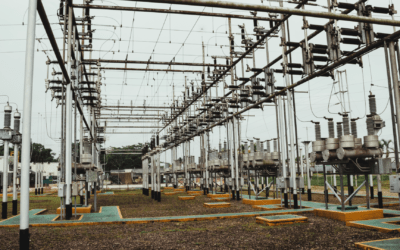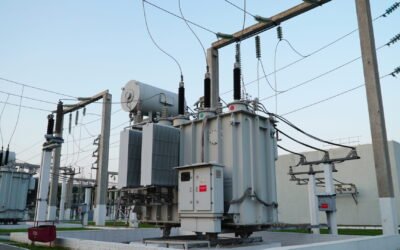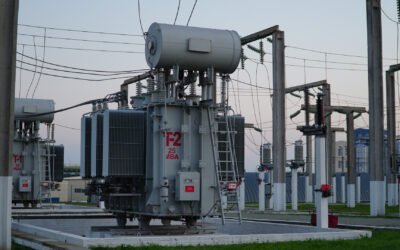Recently, I had the privilege to attend and present at the Greentech Festival, an excellent event in the realm of sustainability. This influential gathering left a profound impact, and I am delighted to share a comprehensive analysis of my experiences.
The Greentech Festival was a vibrant hub of activity, pulsating with the energy of engaged participants. With 14,000 visitors, 350 speakers across five stages, and 200 exhibitors, the event was a melting pot of diverse stakeholders, fostering an environment ripe for meaningful dialogue and collaboration.
A notable feature of the Greentech Festival was its exhaustive exploration of sustainability issues. The conference addressed a broad spectrum of sectors, including transportation, agriculture, energy efficiency, automation, and building infrastructure. Particularly commendable was the inclusion of discussions on sectors traditionally viewed as difficult to decarbonize due to technological and financial limitations, such as the aviation industry and building infrastructure. This inclusive approach underscored the necessity of a holistic strategy for achieving sustainability.
What distinguished the Greentech Festival was its emphasis on pragmatic solutions to existing challenges. The panels did not merely engage in high-level discourse; instead, they delved into specific bottlenecks related to financing, policy, and technology. This practical orientation provided attendees with actionable insights and strategies for overcoming current obstacles in the sustainability landscape.
The composition of the panels at the Greentech Festival was particularly noteworthy. They featured a balanced mix of experts from research, industry, and policy domains, ensuring a multidisciplinary perspective on each issue. This diversity facilitated richer discussions and more comprehensive analyses of sustainability challenges and opportunities. Coming from an energy background, the conference content illuminated how tunnel-visioned I had been regarding sustainability. It became evident that numerous sectors urgently require sustainable practices. Agriculture, in particular, stood out as an area significantly neglected over the years, where innovation and technology have been slow to permeate.
One of the strengths of this conference was its facilitation of critical debates on contentious topics such as carbon capture. These discussions are essential for advancing sustainability dialogues. The panelists and presenters did not shy away from presenting opposing viewpoints, thereby offering the audience a nuanced understanding of complex issues. For instance, debates scrutinized the viability and implications of carbon capture and storage, questioning whether it serves as a legitimate solution or merely prolongs the reliance on the oil and gas industry. Similarly, discussions on the pace of innovation in sustainable air travel and the dual impact of AI on sustainability were particularly enlightening.
Beyond the conference sessions, the event showcased a large number of exhibitors presenting innovative solutions. It was inspiring to see companies from various sectors demonstrating their commitment to sustainability through practical solutions. The Startup Land was an excellent initiative, highlighting brilliant concepts in sustainability. This area provided a platform for emerging startups to display their innovative ideas and technologies, further enriching the conference experience.

Key Takeaways
- The festival’s vibrant and engaged atmosphere was a catalyst for productive interactions and knowledge exchange.
- The comprehensive coverage of sustainability, including hard-to-decarbonize sectors, highlighted the need for an all-encompassing approach.
- The panels’ emphasis on real-world solutions to current bottlenecks in financing, policy, and technology provided valuable, actionable insights.
- The diverse mix of researchers, industry leaders, and policymakers enriched the discussions, offering well-rounded perspectives.
- The open debates on topics such as carbon capture and the role of AI contributed to a deeper understanding and critical evaluation of these issues.
Greentech Festival was an excellent event that provided a comprehensive and pragmatic examination of sustainability. The engaged atmosphere, extensive coverage, and focus on actionable solutions made it an invaluable experience. The diversity of perspectives and critical debates further enhanced the festival’s impact, fostering a deeper understanding of the complexities surrounding sustainability. I am eager to see how these discussions will influence future sustainability initiatives and drive meaningful progress.
Europe: +49-89-12250950
Americas: +1 408-604-0522
Japan: +81-80-7808-1378
GCC/Rest of APAC: +971-58-1602441
More About our: Services
Recent Insights
Ep 22 | E-Mobility Conversations from the Green Auto Summit – Key Insights from 3S Knowledge (3SK)
Overview: In this PTR Perspective episode, Saqib Saeed, Chief Product Officer at PTR Inc., speaks with Gireesh Krishnan, Director at 3SK, a consultancy specializing in system, process, and functional safety services. With a focus on compliance with ISO 26262 and...
Driving the Future of Energy: Key Takeaways from ADIPEC 2024
Attending ADIPEC 2024 was an insightful experience. The event offered a collaborative environment for meaningful discussions on the energy transition. Working in the power sector and predicting this pivotal energy shift for years, it was great to see PTR’s analysis...
Exploring the European EVCI Services Market Key Players and Emerging Trends
There has been a significant surge in the development of EVCI due to the widespread adoption of EVs in Europe. By 2030, it is expected that Europe will dominate global EV charger I&C and maintenance market and for a 42% and 50% share of the market in 2030,...
Role of Digital Power Transformers in the Modern Energy Landscape
• The development of digital power transformers has ushered in a new era of efficiency and grid optimization in the energy sector, simultaneously providing revenue to the power transformer company. • Digital power transformers provide multiple benefits with remote...
Smart Transformers: Revolutionizing the renewable energy landscape
Most of the installed transformers worldwide consist of conventional transformers, but the global transformer market is expected to move towards smart transformers that are more equipped to accommodate the significant deployment of renewable energy. Smart transformers...
Revolutionizing the Power Industry: How Grid Modernization is Impacting the Distribution Transformer Market
• In the last decade, especially after the Paris Agreement in 2015, the global energy market is observing a marked shift and is currently in a state of transition. • Power Technology Research expects that the global distribution transformer market will grow with a...
Carbon Capture, Storage and Utilization: Transforming Emissions into Solutions
• CCUS technologies involve capturing CO2 emissions from industrial processes, utilizing it in various ways, and storing it permanently underground.• CCUS provides a cost-effective way to reduce GHG emissions from industrial processes, thereby contributing to the...







